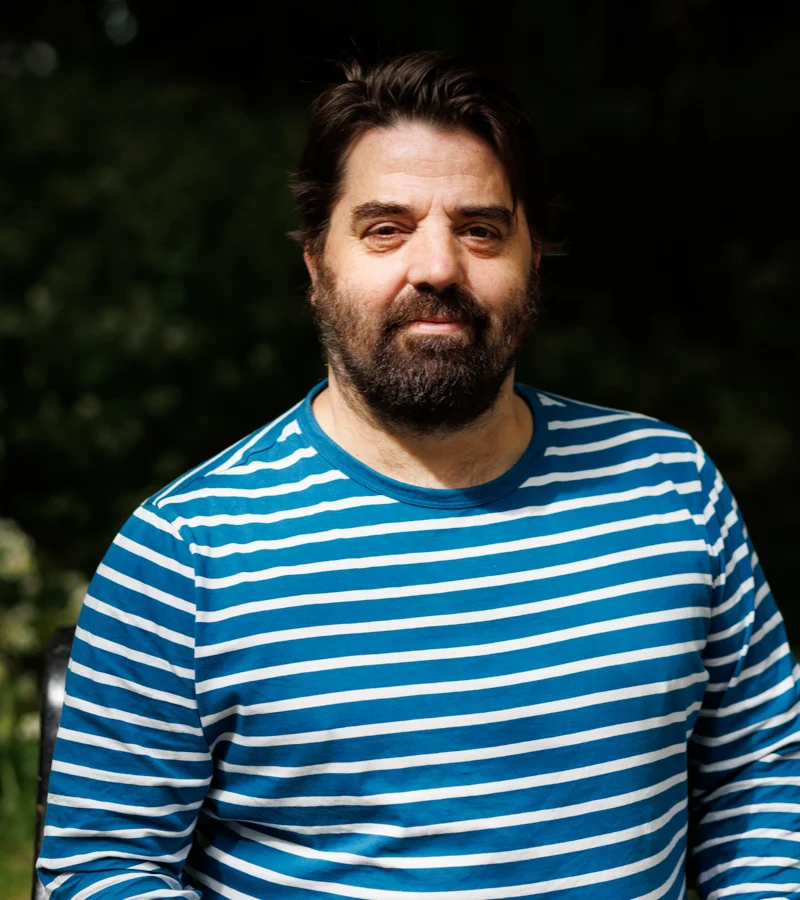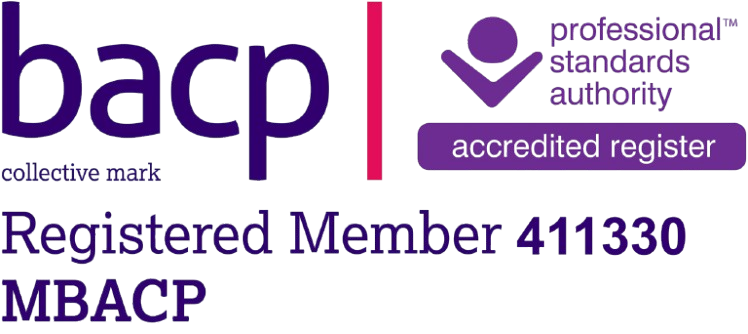Welcome to Coastpath Counselling & Psychotherapy
A confidential space to explore the thoughts, feelings and challenges in your life.
Counselling & Psychotherapy in a Safe, Comfortable & Private Setting
Hi, I'm Edmund. Before becoming a therapist, I worked in Dance, Theatre and Performing Arts production, where I was deeply involved in the creative and collaborative world of production. That experience nurtured my appreciation for the creative process and the many layers of human expression and connection.
Now, as a trained Integrative Psychotherapist, I draw on both existential and psychodynamic approaches to support clients in exploring the deeper threads of their lives.
I offer a reflective, supportive, and non-judgmental space where you can be met with curiosity and care. Whether you're facing a specific difficulty or seeking a greater sense of meaning and self-understanding, our work together is a space to explore, grow, and create change.
I am a registered member of the BACP.
How Can Counselling & Psychotherapy Help?
This is a space for thoughtful, reflective therapy that supports you in exploring your inner world, relationships, and life challenges. Rooted in integrative psychotherapy, the work draws on existential and psychodynamic approaches.
Sessions offer a confidential, non-judgmental environment where you can slow down, speak freely, and be met with empathy and curiosity. Whether you are facing anxiety, low mood, trauma, loss, relationship difficulties, or a more general sense of disconnection, therapy can help you make sense of your experience and begin to move forward with greater clarity and self-awareness.
Therapy is not about quick fixes, it may not be about fixing anything at all, existential practice is about uncovering the choices you are actually facing and exploring what decisions you want to make.

Speak in Confidence
Therapy offers a safe space where you can share your thoughts and feelings freely. You’ll be heard with sensitivity, empathy, and without judgment, allowing you to express yourself openly and confidentially.

A Problem Shared…
Many people face challenges like relationship difficulties, anxiety, mood swings, or depression. Therapy provides a space to explore what these issues mean to you and how you live and find ways live more authentically.

Making Authentic Choices
Together, we’ll explore your experiences and reactions to gain insight. This understanding will support you in making healthier choices.
What Issues Can Counselling & Psychotherapy Help With?
People come to me for help with a wide range of issues.
Here are some of the more common difficulties that counselling can support:
Feelings of stress or anxiety
Panic attacks
Relationship problems
Grief, loss or bereavement
Problems with addiction
Trauma and post-traumatic stress
Depression
Problems with confidence or self-esteem
Anger management
Issues relating to sexuality
Difficulties at work or in retirement
Issues relating to masculinity
Fees & Availability
Sessions are 50 minutes long and typically take place once a week. Consistency and continuity are important in this work, and we’ll work together to find a rhythm and setting that feels right for you.
My standard fee is £85 per session. I also offer a limited number of reduced-rate spaces for those working in the arts, in recognition of the financial challenges often faced in creative professions. Please feel free to get in touch to discuss availability.
My Location
I work in Clapham: 76a Battersea Rise, London SW11 1EH, and in Farringdon: 1 Snow Hill, EC1A 2EJ (opposite City Thameslink Station).
I offer both in-person therapy for clients in the Greater London area and online sessions via Zoom, depending on your preference and needs. Contact me to find out more about how online therapy works.
Get In Touch
Feel free to contact me if you have any questions about how counselling and psychotherapy works, or to arrange an appointment. This enables us to discuss the reasons you are thinking of coming to counselling, whether it could be helpful for you, and whether I am the right therapist to help.
You can also call me on 07780972366 if you would prefer to leave a message or speak to me first. I am happy to discuss any queries or questions you may have prior to arranging an initial appointment.
All enquires are usually answered within 24 hours, and all contact is strictly confidential and uses secure phone and email services.
Frequently Asked Questions
Many therapists tend to view Counselling as ‘short-term’ work; when someone has a problem that can be looked at and discussed in a clearly-resolvable way. This work often requires undertaking sessions for a certain number of weeks, to explore, discover and clarify a way forward. Therapy is a word used more to describe ‘long-term’ work; discussion that tends towards substantial issues and things that might be life-changing on a deeper level.
Whether counselling or therapy work best as a short- or long-term option depends on the client though, and the difficulties they are facing. In some cases counselling can prove helpful as a continuing, longer-term option, or therapy can help resolve an issue in just a few sessions.
There’s no fixed or ideal length of time for the counselling process; it varies from person to person and will depend on the depth of the issues they are facing. I usually work on an open-ended basis but am able to offer short or fixed term if that feels more appropriate for you. In either case you are able to decide how long your therapy will last. My aim is to make sure therapy continues for only as long as it is of benefit to you.
This depends on what your needs are. Some people find that after only a very few sessions they have some clarity and focus and are ready to end the therapy. Other people value the ongoing support and relationship with me and will continue to come for weeks, months, or even years. There is no 'one-size-fits-all' when it comes to therapy.
My aim is to offer you a first appointment, known as an assessment session within 1-2 weeks, however, waiting times will vary according to pressure on our resources, your availability and the service you seek.
An appointment to our short term counselling can be offered within about one week.
Confidentiality is one of the main ways in which therapy differs from many other forms of helping - for example, talking to friends or family can rarely offer the same degree of confidentiality as talking to a counsellor. Because of this confidentiality, you will find that - as you get used to coming for therapy - you are freer to talk about whatever you wish to.
No therapist can offer 100% confidentiality: there are some situations where the law requires disclosure of risk and there are some situations where I may not be able to keep total confidentiality. In particular, if someone tells me that they are thinking of harming themselves in a way that I believe puts them at serious risk, or if they are doing something that could put others at risk. Breaking confidentiality is rare, and only happens after making every effort to contact the person concerned.
When you come for counselling it's important that you feel free to talk about whatever is important to you. Sometimes you may not be clear what those issues are. Having a friend or family member with you is not usually helpful because they may have their own agenda for you. Even if this is just that they want to be supportive, or want you to 'get better', this agenda can prevent us opening issues up. When you come for therapy, you may need to explore thoughts or behaviours about which you feel ashamed or embarrassed and you may censor yourself so as not to hurt someone, or you may find that what they want you to talk about is not really what you need to discuss.
Sometimes, family/friends can even be part of an underlying issue which needs to be aired and discussed. Usually, people who ask this question are nervous about coming for a session alone, or they are anxious for the person who is thinking about arranging sessions. This anxiety is quite normal, and you will not be forced to talk about anything you feel uncomfortable about - but you do need to be able to talk about whatever is important. For this reason, I do not see clients accompanied by friends or family.
© Coastpath Counselling & Psychotherapy
powered by WebHealer

